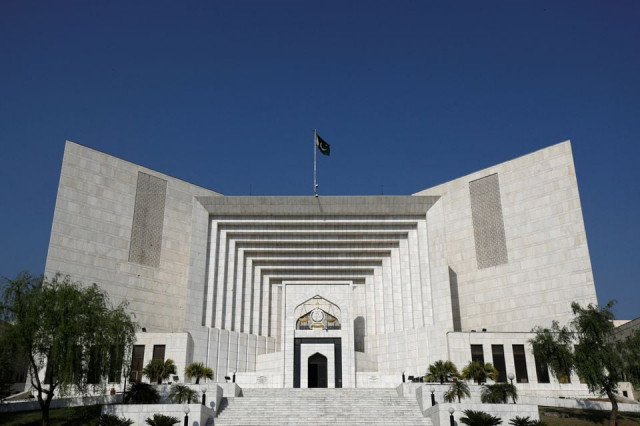NAB told to give details of recovered assets
CJP says anti-graft body responsible for providing proof of wealth beyond income after amendments

Resuming the hearing of a plea against the National Accountability Bureau (NAB) law changes, the Supreme Court on Thursday sought details of the illegal wealth recovered by the anti-graft body so far and their payment to government and private individuals.
A three-judge special bench, headed by Chief Justice of Pakistan Umar Ata Bandial and comprising Justice Ijazul Ahsan and Justice Mansoor Ali Shah, continued the hearing of a petition filed by PTI Chairman Imran Khan against the current government’s amendments to the National Accountability Ordinance (NAO), 1999.
During the proceedings, the CJP observed that after the NAB amendments, now it was the responsibility of the NAB to prove assets in excess of income as well as benami wealth.
He added that the anti-graft body would also have to provide evidence of benami financial transactions.
Justice Ahsan noted that a case was registered to prove the financial payment record of a person accumulating unnamed assets.
He added that the changes in the accountability law had limited the benamidar to either a spouse, relative or employee.
He maintained that the amendments had narrowed the scope of the law instead of expanding it.
The judge noted that the prosecution could no longer prove benami properties in any case unless the affected party provided evidence.
To this, the government’s lawyer Makhdoom Ali Khan told the court that the purpose of this change was to ensure that NAB did not take action by imposing unwarranted charges against anyone.
Khan added that after the amendments, NAB would require concrete evidence before charging anyone.
After that, the court sought details from NAB of the amount recovered till date.
It also directed the anti-graft body to inform the court how much money it had recovered so far and where was it now.
The SC sought details including how much money had been deposited to which province as well as the federal government.
The court also told NAB to provide it with the details of the money returned to state institutions, banks and the people.
The NAB prosecutor told the court that the recovered embezzled money was returned to the government or institution after a thorough scrutiny.
Later, the hearing of the case was adjourned till April 4.
In the plea, the PTI chief had described the amendments as “violative of fundamental rights”.
He further claimed that the changes in the law were made to benefit influential people and legitimise corruption.
He added in the petition that the amendments were aimed at setting aside corruption charges against the president, prime minister, chief ministers and ministers.
Imran further contended in his plea that the changes allowed convicted public office-holders to have their sentences reversed.


1724319076-0/Untitled-design-(5)1724319076-0-208x130.webp)
















COMMENTS
Comments are moderated and generally will be posted if they are on-topic and not abusive.
For more information, please see our Comments FAQ